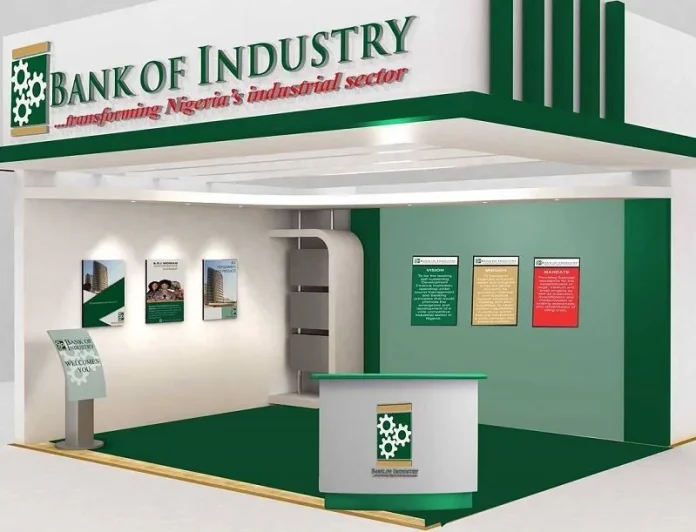THE Bank of Industry (BOI) has announced the commencement of the Rural Area Programme for Investment and Development (RAPID) for Micro Small and Medium Enterprises (MSMEs) and community groups in rural areas.
This was disclosed in a post on the official X handle of the BOI where it explained that the extension of the deadline was to allow entrepreneurs the opportunity to apply for the loan.
The RAPID funding programme aims to provide loans of up to N10 million to MSMEs in rural areas at a five per cent interest rate for a tenure of three years. The bank noted that interested applicants visit its website to apply.
The objective of the program is to assist communities in rural and economically disadvantaged areas in utilizing available resources to develop enterprises. These enterprises aim to provide employment, improve the standard of living, contribute to national growth, and address insecurity stemming from youth restiveness.
The Bank of Industry (BOI) earlier in May launched the RAPID program in Lagos with the target of empowering 10 beneficiaries per state and the Federal Capital Territory (FCT) totalling 370 beneficiaries. Following the removal of fuel subsidy, the Federal Government announced various grants and loan programs aimed at alleviating the impact of the subsidy removal on their businesses.
The programmess include; the N75 billion single-digit loan to manufacturers and the N50, 000 grant to nano businesses across the 744 local government areas of the country. There is also a N200 billion grant to Small and Medium Scale Enterprises (SMEs) all over the country.
The Federal Government’s Presidential Conditional Grant Scheme (PCGS), offers non-repayable financial grants to eligible small business owners in various sectors, including trading, food services, ICT, transportation, creative industries, and artisans.
The PCGS plans to allocate 70 per cent of the grants to women and youths, 10 per cent to individuals with disabilities and five per cent to senior citizens, with the remaining 15 per cent designated for other demographics.
The Bank of Industry (BOI) is also partnering with the federal government in the distribution of the N200 billion loan to manufacturers and SMEs across the country which has already been launched.
According to the Minister of Industry, Trade and Investment, Dr. Doris Uzoka Anitie, under the program, N75 billion will be distributed to MSMEs while another N75 billion will be distributed to the manufacturing industry under the Presidential Intervention Fund.
The Nigeria Distribution Sector Recovery Program was approved by the World Bank Board on February 4, 2021, and became effective since February 2, 2023. The programme’s primary objective is to enhance the financial and technical performance of Nigeria’s electricity distribution companies (DISCOs).
This initiative is crucial for stabilizing and improving electricity supply across the nation, which has been plagued by inefficiencies and inadequate infrastructure.
The document informed that the “project was approved by the Board on February 4, 2021, and it became effective on February 2, 2023. DISREP was included in the external borrowing plan of Nigeria on May 15, 2024.
“The Objective of the Project is to improve the financial and technical performance of the electricity distribution companies.
According to the report, the progress towards achieving the project objectives has been rated as “Moderately Unsatisfactory,” both in terms of overall implementation and specific project development outcomes.
Key performance indicators such as the reduction in DISCOs’ metering gap, semi-annual electricity billing, and the collection of billed electricity have shown slow or stagnant progress.
Despite the approval and effectiveness of the loan, the disbursement rate remains at 0%, with the entire $500 million still not disbursed.
The project aims to reduce the metering gap, enhance electricity billing and collection efficiency, and improve corporate governance within DISCOs.
However, as of the latest report, there has been no significant improvement in these areas. For instance, the target to reduce the metering gap remains unmet, with a current gap reduction of 0%.
The report also shows that the Nigerian government has committed to awarding contracts for the supply and installation of 1.25 million smart meters by the end of June 2024.
This effort is expected to significantly improve metering accuracy and billing efficiency, addressing one of the critical areas of the project.
While campaigning for the presidency, Bola Tinubu released a manifesto outlining a plan to eliminate estimated billing and ensure that all Nigerian homes and businesses are equipped with prepaid meters.
However, under his administration, the number of estimated billing customers has seen the largest growth rate both quarterly and yearly, based on data from the NBS up to 2022.
The Nigeria Electricity Report by the National Bureau of Statistics (NBS) for the first quarter of 2024 shows a 10% quarter-on-quarter increase in estimated billing customers, as the metering gap widens. The number of customers on estimated billing rose from 5.83 million in Q4 2023 to 6.43 million in Q1 2024, marking a notable 10% increase.
About 52% (an increase from 48% recorded in the previous quarter) of the total DISCOs’ customers are on estimated billing this quarter.
This increase occurs amid the Federal Government’s plan to eliminate estimated billing by the end of 2024.
It further highlights a persistent issue within the Nigerian electricity sector, which is the inability to adequately meter all customers to bridge the metering gap despite various initiatives.


